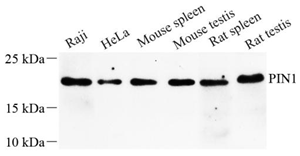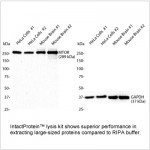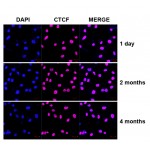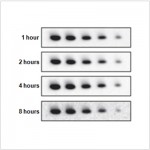| Reactivity: | H,M,R |
| Applications: | WB |
| Host Species: | Rabbit |
| Clonality: | Polyclonal |
| Full Name: | Pin1 rabbit polyclonal antibody |
Gene Name: | Peptidyl-prolyl cis-trans isomerase NIMA-interacting 1 |
Synonyms: | Peptidyl-prolyl cis-trans isomerase Pin1, PPIase Pin1, Pin1 |
Immunogen: | KLH conjugated Synthetic peptide corresponding to Mouse Pin1 |
Isotype: | IgG |
Purity: | Affinity purification |
Predicted MW. | 18 kDa |
Observed MW. | 18 kDa |
Uniprot ID: | Q13526, Q9QUR7, B0BNL2 |
Product Usage Information
Applications | Species | Dilution | Positive tissue |
WB | Human, Mouse, Rat | 1: 300-1: 800 | spleen, testis |
Background
Pin1 is a Peptidyl-prolyl isomerases (PPIase). Peptidyl-prolyl isomerases (PPIase) facilitate the cis-trans interconversion of the peptidyl-prolyl bond thereby affecting protein folding. Pin1 is a PPIase which specifically recognizes phosphorylated S/T-P bonds.Pin1 has been implicated in tau pathologies that underlie Alzheimer's Disease. Pin1 binds to tau phosphorylated specifically on the Thr231-Pro site and induces conformational changes in tau. Such conformational changes can directly restore the ability of phosphorylated Tau to bind microtubules and promote microtubule assembly and/or facilitate tau dephosphorylation. Pin1 expression inversely correlates with the predicted neuronal vulnerability in normally aged brain and also with actual neurofibrillary degeneration in AD brain. Pin1 could be pivotal for maintainance of normal neuronal function and preventing age-dependent neurodegeneration.
Images
|
|
Western blot analysis of PIN1 (GB111193) at dilution of 1: 300 |
Storage
| Storage | Store at -20°C for one year. Avoid repeated freeze/ thaw cycles. |
| Storage Buffer | PBS with 0.02% sodium azide, 100 μg/ml BSA and 50% glycerol. |




